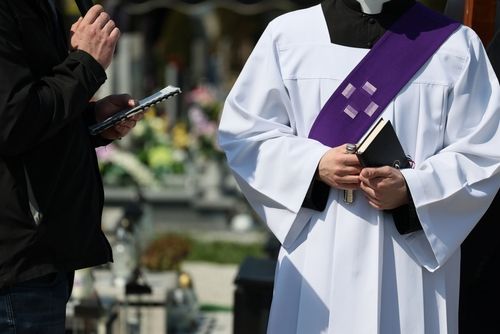 Funeral rites are an essential aspect of how societies honor and remember their deceased. However, the homeless and indigent—those who lack the financial means or social support for traditional funerals—often face unique challenges when it comes to final arrangements. Despite these challenges, various organizations and communities work tirelessly to ensure that these individuals receive dignified and respectful funerals. This blog explores the importance of funeral rites for the homeless and indigent, the challenges involved, and the compassionate efforts made to honor their lives.
Funeral rites are an essential aspect of how societies honor and remember their deceased. However, the homeless and indigent—those who lack the financial means or social support for traditional funerals—often face unique challenges when it comes to final arrangements. Despite these challenges, various organizations and communities work tirelessly to ensure that these individuals receive dignified and respectful funerals. This blog explores the importance of funeral rites for the homeless and indigent, the challenges involved, and the compassionate efforts made to honor their lives.
The Importance of Funeral Rites
Funeral rites serve multiple purposes: they provide a sense of closure for the deceased's loved ones, allow communities to express their grief collectively, and honor the life and legacy of the deceased. For the homeless and indigent, these rites are equally important, serving as a final acknowledgment of their humanity and dignity. Despite their marginalized status in life, ensuring they receive a respectful burial or cremation is a powerful statement of their inherent worth as human beings.
Challenges in Providing Funeral Rites
Financial Constraints
One of the primary challenges in providing funeral rites for the homeless and indigent is the financial burden. Traditional funerals can be expensive, often including costs for a casket, burial plot, transportation, and funeral services. Without financial resources or family support, many homeless and indigent individuals face the possibility of being buried in unmarked graves or being cremated without a ceremony.
Lack of Identification
Many homeless individuals lack proper identification, making it difficult to notify next of kin or to even determine their identity. This lack of identification complicates the process of arranging a funeral, as authorities may be unable to contact family members or ascertain any religious or personal preferences the deceased might have had.
Social Stigma
There is often a social stigma associated with homelessness and indigence, which can extend to their treatment in death. Some people may view these individuals as less deserving of respectful funeral rites, which can lead to inadequate care and attention during their final arrangements.
Compassionate Efforts to Honor the Deceased
Despite these challenges, numerous organizations and communities have taken on the responsibility of ensuring that homeless and indigent individuals receive dignified funerals.
Government Programs
Many local governments have programs in place to provide for the burial or cremation of indigent individuals. For instance, some municipalities allocate funds specifically for indigent burials, ensuring that these individuals are not forgotten. These programs often work in partnership with funeral homes and cemeteries to offer low-cost or free services.
Nonprofit Organizations
Several nonprofit organizations are dedicated to providing dignified funeral services for the homeless and indigent. For example, the National Homeless Coalition in the United States works with local partners to ensure that homeless individuals receive respectful funerals. Similarly, organizations like the Funeral Service Foundation offer grants and support to help cover funeral costs for those in need.
Community and Faith-Based Initiatives
Many communities and faith-based organizations also play a crucial role in honoring the deceased. Churches, synagogues, mosques, and other religious institutions often provide funeral services and support to homeless and indigent individuals, guided by their faith's teachings on charity and compassion. These initiatives may include memorial services, burial ceremonies, and the provision of grave markers to ensure that the deceased are remembered.
Funeral rites for the homeless and indigent are an essential aspect of maintaining dignity and humanity in death, regardless of an individual's circumstances in life. While financial constraints, lack of identification, and social stigma present significant challenges, compassionate efforts from government programs, nonprofit organizations, faith-based initiatives, and community volunteers ensure that these individuals are remembered and honored. By continuing to support and expand these efforts, we can affirm the inherent worth of every human being and provide a final act of respect for those who have passed away under difficult circumstances.